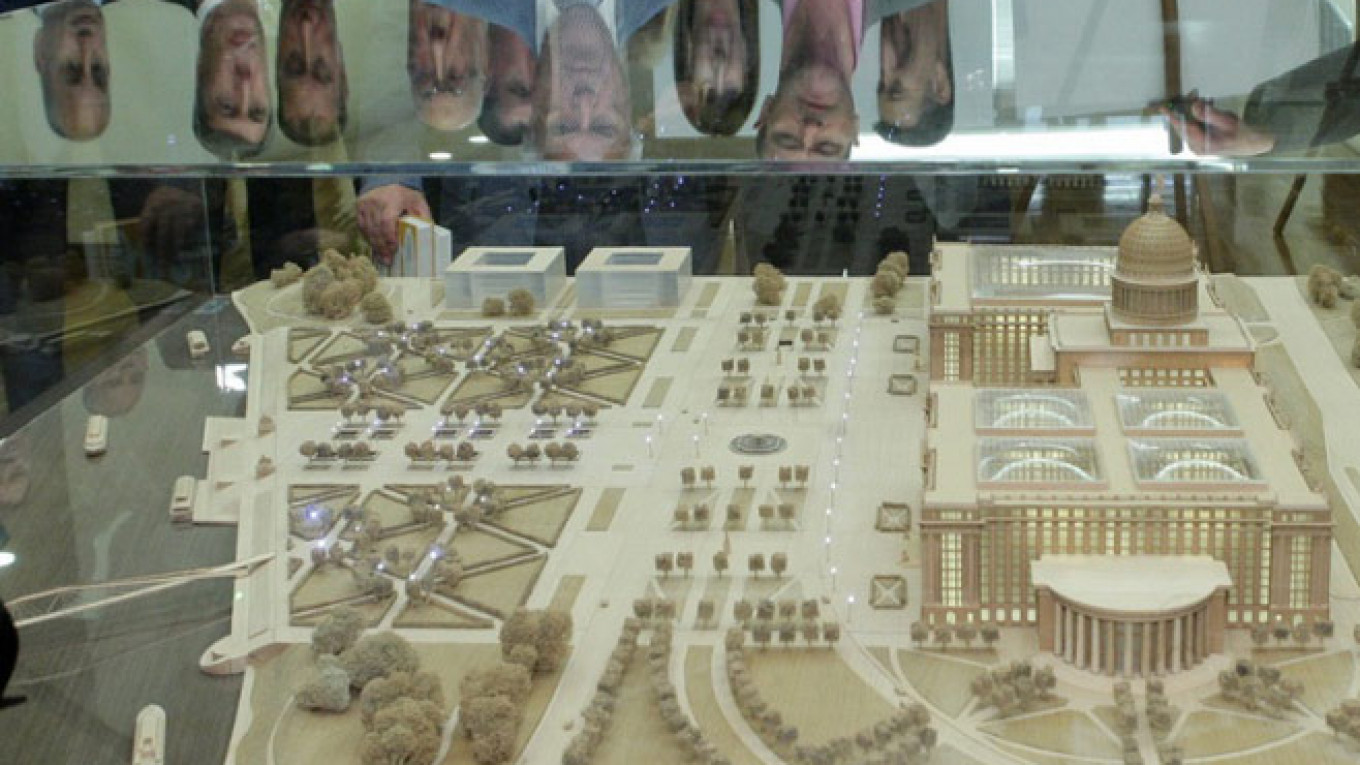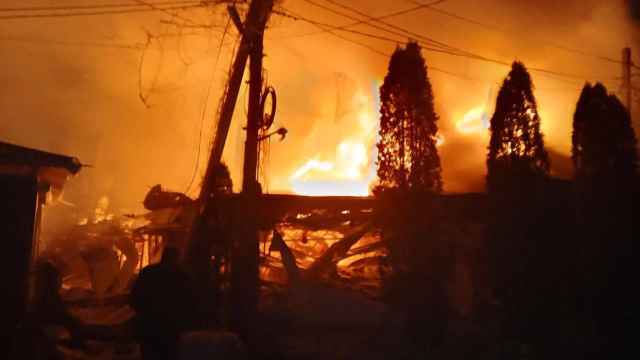The government committee charged with selecting the design of Russia's new parliament building has rejected all the ideas put forth and will relaunch the competition from scratch later this year, newspaper RBC reported Tuesday.
Last week members of Russia's upper house of parliament, the Federation Council, voted in favor of a design strongly resembling the U.S. Capitol Building. Two other designs were also considered, one by an Italian architect known for close ties with the Russian elite and one by the architect who designed Moscow's Christ the Savior Cathedral.
The design selected by the Federation Council cannot be used, however, as its abundance of windows is not suited to Russia's harsh winters, according to Yelena Panina, deputy head of the committee responsible for the new parliament's construction.
"Problems would arise in maintaining the building and in winter it would be cold," Panina told RBC.
Panina also critiqued the proffered designs for not offering easy access between sectors of the center, but said that the fault lay partly with the government's unclear tender.
"We now have a better idea of what the building should be [like]," Panina told RBC. She added that the committee would announce a second competition later this summer or in the fall.
Construction of the new parliamentary center, which will be built near the Moscow suburb of Rublyovka, where many government officials live, is meant to ease traffic jams in the city center. Russia's two legislative bodies, the State Duma and the Federation Council, currently work out of two separate buildings in central Moscow and traffic is frequently snarled as police shut down city streets to let the lawmakers through.
Mikhail Gutseriyev, the developer who won the tender to to build the new parliament building, has estimated the cost of its construction at $1.5 billion, Interfax reported previously.
A Message from The Moscow Times:
Dear readers,
We are facing unprecedented challenges. Russia's Prosecutor General's Office has designated The Moscow Times as an "undesirable" organization, criminalizing our work and putting our staff at risk of prosecution. This follows our earlier unjust labeling as a "foreign agent."
These actions are direct attempts to silence independent journalism in Russia. The authorities claim our work "discredits the decisions of the Russian leadership." We see things differently: we strive to provide accurate, unbiased reporting on Russia.
We, the journalists of The Moscow Times, refuse to be silenced. But to continue our work, we need your help.
Your support, no matter how small, makes a world of difference. If you can, please support us monthly starting from just $2. It's quick to set up, and every contribution makes a significant impact.
By supporting The Moscow Times, you're defending open, independent journalism in the face of repression. Thank you for standing with us.
Remind me later.






